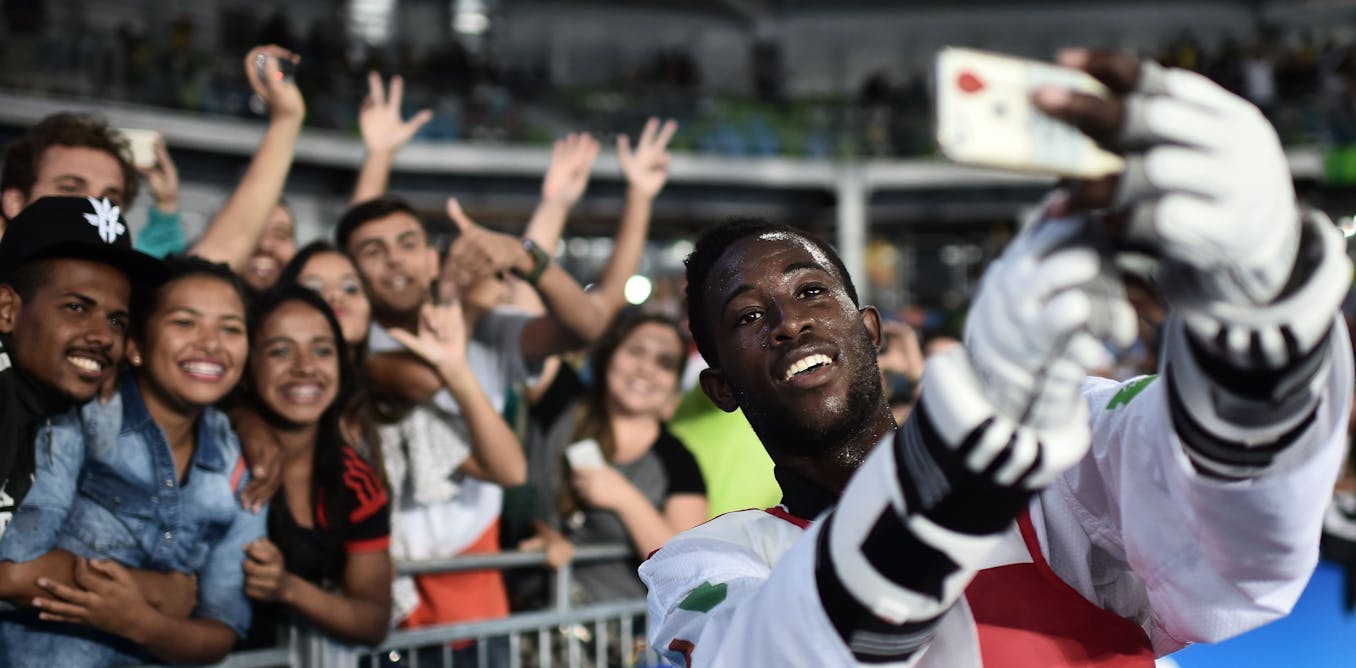
Enhanced Athlete Engagement and Brand Building
In the current sports landscape, athletes have transformed into influential figures, leveraging social media platforms to connect with fans, showcase their personal brands, and gain sponsorships. Social media offers athletes a powerful means to share their stories, experiences, and achievements directly with millions of followers. It serves as a vital tool for building marketability, which in turn attracts lucrative sponsorship deals. Athletes like Simone Biles and Usain Bolt exemplify this trend, securing significant earnings through their online presence, which has become as crucial to their careers as their performances on the field or court[1][6].
The 2024 Paris Olympics highlighted the potential of social media for athletes to enhance their visibility and engagement with fans. Athletes actively utilized platforms like TikTok and Instagram to provide behind-the-scenes content and personal insights during the Games. This shift has allowed even lesser-known athletes to grow their reach and monetization opportunities, taking advantage of the IOC's updated guidelines permitting greater social media freedom during the Olympics[2][6][9].
The Role of Brands and Partnerships

Social media's influence extends beyond athletes to brands and sponsors, who recognize the importance of associating with popular personalities to enhance their visibility and market presence. Major brands such as Nike, Adidas, and LVMH strategically partner with athletes during events like the Olympics to drive engagement and sales[8]. For example, Nike launched its largest global advertising campaign during the Paris Olympics, leveraging star athletes to boost their product lines and overall brand appeal. This approach underscores the deep intertwining of brand marketing with athlete imagery, particularly in high-stakes environments such as the Olympics[8].
Brands are increasingly utilizing social media to activate their sponsorships, leveraging athlete followings to amplify marketing messages. The rise of iconic athletes as social media influencers has opened up new channels for marketing, as seen during the Olympics when partnerships with athletes resulted in increased visibility and engagement for both parties involved[4][8][9].
Fan Engagement and Consumption Trends

Social media significantly shapes how fans consume sports content. Research indicates that younger generations prioritize personalized digital experiences over traditional broadcasts, illustrating a fundamental shift in how sporting events are followed and engaged with. According to a Deloitte study, while 71% of fans express a preference for live events, this figure drops to 58% among Gen Z and millennials[7]. These fans predominantly rely on social media for supplemental content, using platforms to access highlights, athlete interviews, and other engaging insights during live events[5][7].
Moreover, the integration of real-time updates and interactive content through social media enhances the viewing experience for sports fans, particularly among younger audiences who utilize multiple devices for sports consumption[5][7]. This shift towards digital formats, including highlights and summarized content, has become the norm, suggesting that for brands and organizations, aligning social media strategies with audience expectations is crucial[5].
Challenges and Responsibilities

Despite the opportunities presented by social media, athletes face significant challenges in managing their online presence. The open nature of these platforms demands that they remain vigilant about their public image, as a single misstep can lead to negative repercussions for both their personal brand and their sponsorships. Content moderation tools, such as those provided by Bodyguard, play a pivotal role in helping athletes filter harmful comments and manage their online reputations effectively[1].
The pressure to maintain a professional online presence is particularly intense during high-profile events like the Olympics, where athletes are under continuous scrutiny[1][6]. This delicate balancing act between authenticity and professionalism requires strategic content management to ensure both personal and commercial interests align in a way that satisfies fans and sponsors alike[1][6].
The Future of Social Media in Sports

As the sports industry evolves, the significance of social media will only increase. The Paris 2024 Olympics demonstrated the potential for athletes to transcend traditional earners, leveraging their digital presence to create diverse revenue streams beyond competition winnings[6][9]. The development of more personalized and interactive content will be essential as brands and athletes continue to explore innovative ways to engage audiences across various platforms.
Looking ahead, the growing influence of technology, including AI-driven enhancements for viewer engagement, promises to reshape the sports consumption landscape further. Fans expect not only real-time updates but also tailored content that resonates with their specific interests and fandoms[5]. As the integration of traditional and digital marketing strategies continues, social media will remain a critical component of how sports engage with their audiences, shaping the future of both athlete branding and fan interaction.
In summary, social media is a transformative force in the sports industry, enhancing athlete engagement, driving brand partnerships, reshaping fan consumption behaviors, and presenting new challenges that require careful navigation. The ongoing evolution of this landscape reinforces the necessity for athletes and brands to adapt strategically to maximize their potential.
Get more accurate answers with Super Pandi, upload files, personalized discovery feed, save searches and contribute to the PandiPedia.
Let's look at alternatives:
- Modify the query.
- Start a new thread.
- Remove sources (if manually added).